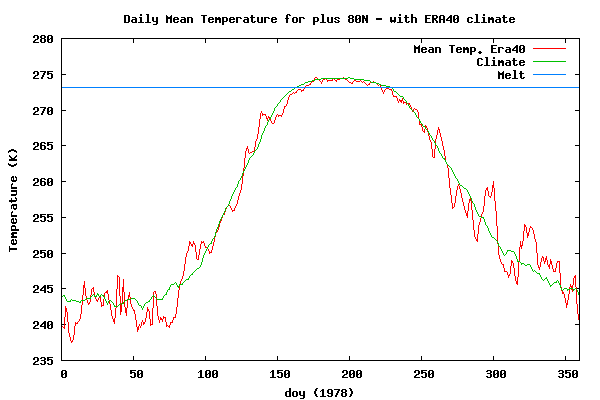Medvedev announces arms build-up, military revamping
Kremlin perceives threats from neighbors, NATO, US
Russian President Dmitry Medvedev caused chills to travel up spines in many nations yesterday when he announced plans to strengthen and revamp Russia’s military infrastructure and “most importantly” strategic nuclear forces.
In his 17 March speech to Russia’s Defense Ministry board Medvedev said:
Any analysis of the military and political situation in the world shows that in a number of regions serious potential for conflict remains. There is always the risk of local crises and international terrorism. Attempts to expand the North Atlantic Treaty Organization on the borders of our country continue. All this requires a qualitative modernization of our Armed Forces to give them a new, forward-looking perspective. Despite the current financial difficulties, we can make all the necessary provisions.
The first challenge is improving the combat readiness of our troops, not just regular improvement but a quantum leap, most importantly in our strategic nuclear forces. They must be unequivocally ready to meet all the challenges necessary to ensure the military security of our nation. What is also on the agenda is the transfer of all combat units and formations to the status of permanent readiness. I want to stress that this is a key component of the new model or new image of the Armed Forces. [Emphasis mine]
The timing of Medvedev's announcement is likely a response to an ill-conceived overture from the White House:
Showing his characteristic lack of foreign-policy experience—and no understanding of the Russians whatsoever—Obama, in February, sent Medvedev a secret message, (since leaked to the press), offering to scrap US plans to place a ballistic missile defense system in Eastern Europe if Moscow would pressure Iran to cease development of its long-range missile and nuclear programs.
Even though the US defensive missile system is designed to shoot down missiles and not deliver nuclear or conventional warheads in an offensive role, the Kremlin has regarded it as a threat since the Bush administration announced plans for the system's deployment. As of this writing, the US still intends to deploy 10 Ground Based Interceptors (GBI) and a Patriot interceptor battery—manned by American crews—in Poland and a missile-tracking radar facility in the Czech Republic:
- A Ground Based Interceptor is a silo-launched missile which will track, intercept and destroy a ballistic missile before that missile and its warhead have re-entered the atmosphere. It has no warhead—using the kinetic energy of high-speed impact to destroy the enemy warhead.
- The Patriot system is a theater air defense missile battery capable of intercepting and destroying tactical ballistic missiles, cruise missiles and combat aircraft. A Patriot missile has a range of 42 miles and a conventional warhead containing 198 pounds of explosive.
The Kremlin, through the thin veil of the Russian state news agency's Novosti, treated Obama's offer with disdain in a recent article.
News of Obama's secret offer to Moscow distressed Polish and Czech officials who, finally free of decades of Russo-Soviet terror and oppression are not anxious for it to return. The deployments will also add a not-inconsiderable boost to the economies of both nations.
But it isn't only the Czechs and Poles who are wringing their hands: Much of Europe is nervous about the reprise of Russian aggression: The First and Second wars with Chechnya, Russia's April 2008 cyber-attack on Estonia, its August 2008 invasion of Georgia and it's bullying squabble with Ukraine, (in which Russia turned off Ukraine's supply of heating gas during the dead of winter), seem, to many, a return to Russian pugnacity and expansionism. The Russians even claim possession of the North Pole, having used a submarine to plant a flag on the ocean floor there.
At a time of economic crisis in the US and Representative Barney Frank's (Loony-Mass.) pressure on Obama to cut spending in vital military programs, a time when the US needs Russia—to keep Iran on a short leash and to help keep US military supply lines open in Afghanistan—a Russian politician would see Obama's humble offering as nothing but a sign of weakness, and act accordingly.
During the Cuban Missile Crisis in October of 1962, the Soviets placed nuclear-tipped ballistic missiles in Cuba—ninety miles from the shores of the United States. After a tense, two-week battle-of-wills between US President John F. Kennedy and Soviet Premier Nikita Khrushchev, the Kremlin agreed to remove their weapons from Cuba. Khrushchev blinked first.
Undoubtedly, the Kremlin views this as almost the same scenario: The difference being that unlike the intended defense system for Eastern Europe, those Soviet Missiles could only be used offensively—each warhead killing potentially millions of Americans.
This time, however, Obama blinked first—and early in the game: Putin and his puppet Medvedev won't forget that. With his foolish show of weakness so early after assuming office, Obama has lost a very great deal of ground to the Kremlin which he may never regain. He’s no Jack Kennedy.
Who leaked Obama’s missive to the press? The first mention of it appears to have been in the Russian newspaper Kommersant. This strongly suggests that the story was intentionally leaked by the Kremlin as a way of showing that the Obama administration was weak on the idea of the defense of Europe—strengthening the Russian position on the matter. The “leak” will also tend to make things more difficult for the White House in dealings with Eastern European—and other—governments.
Obama would do well to remember that for decades, the Kremlin and, more recently, Dictator Prime Minister, (former KGB colonel), Putin have been known for playing—evil—games: indeed, they are masters, they are ruthless and they are playing those aggressive, expansionist games once more. Obama would also do well to remember who the game of Russian Roulette is named after. And why.
“I'd rather have the United States be the world's policeman than the Soviet Union be the world's jailer”










No comments:
Post a Comment